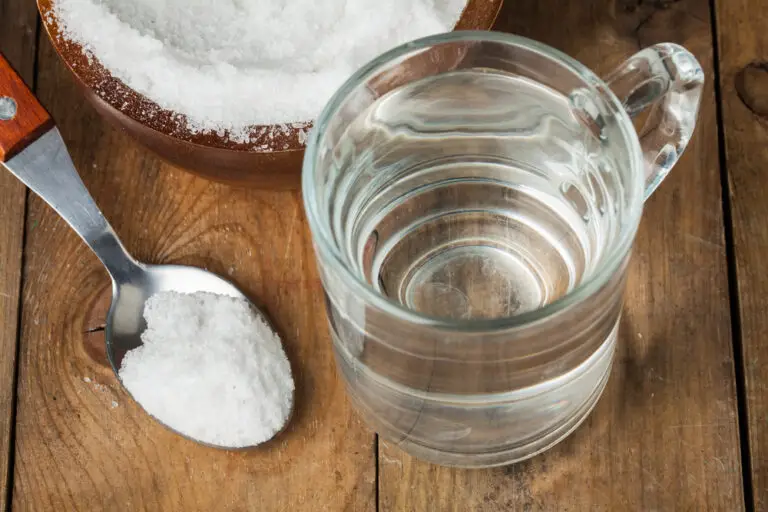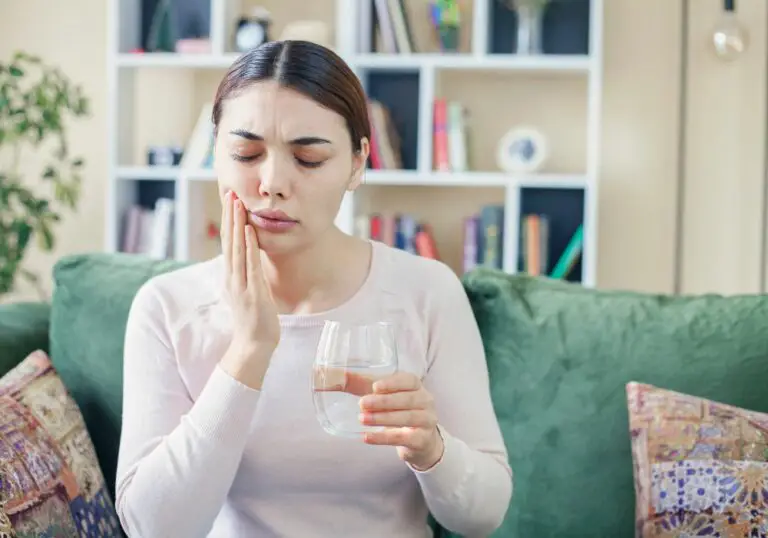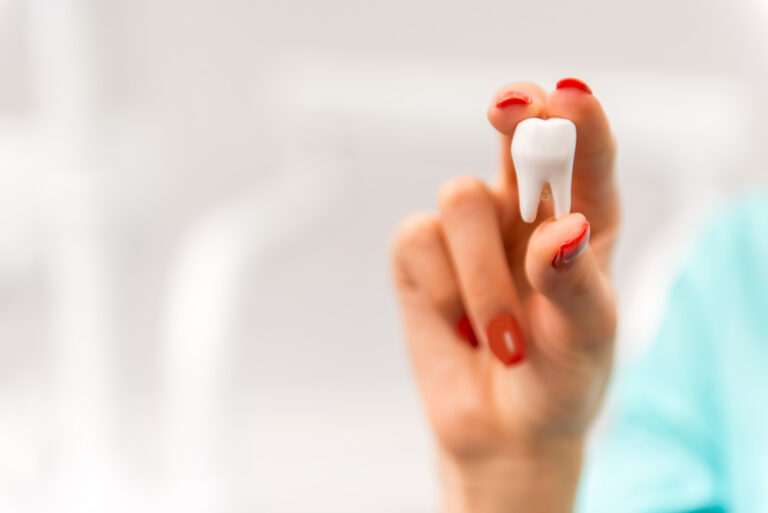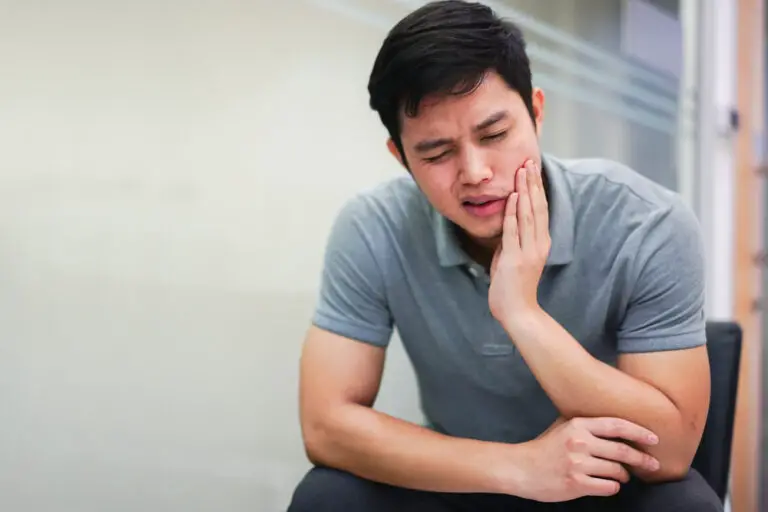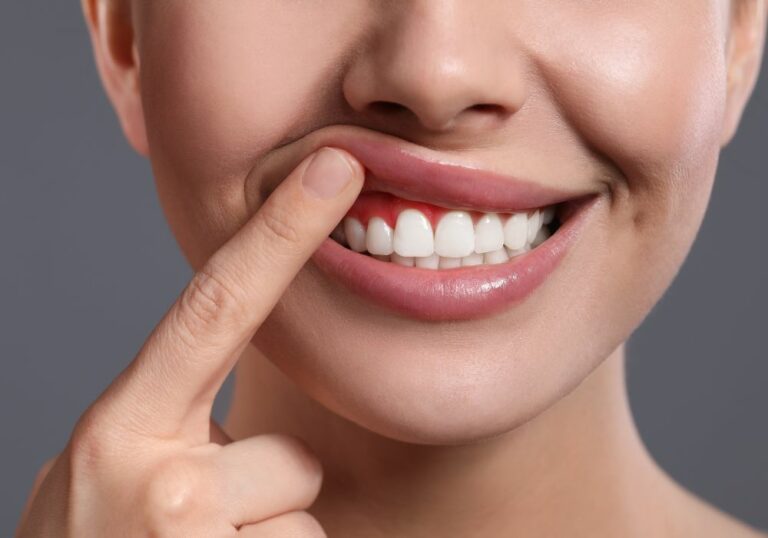Teeth grinding, also known as bruxism, is the medical term for the grinding and clenching of teeth. It is a common condition that can affect people of all ages, including children, adolescents, and adults. Teeth grinding refers to the repetitive jaw-muscle activity characterized by bracing, thrusting, or grinding of the teeth.
What causes bruxism?
The causes of bruxism are not completely understood, but may include a combination of physical, psychological, and genetic factors.
Physical Causes
- Malocclusion – Issues with the bite, such as misaligned upper and lower jaws or abnormal shaping and positioning of teeth can put pressure on chewing muscles and contribute to bruxism.
- Digestive issues – Stomach acid or reflux may trigger bruxism when digestive issues are present. Tense jaw and neck muscles can also aggravate digestive problems.
- Neurological disorders – Movement disorders like Huntington’s disease, Parkinson’s disease, dementia, epilepsy, and night terrors are associated with jaw clenching and teeth grinding, especially during sleep.
- Medications – Antidepressants, amphetamines, beta blockers, antihistamines may cause bruxism as a side effect. Clenching and grinding has also been linked to dopamine agonists, SSRIs, and nicotine.
Psychological Causes
- Stress and anxiety – Emotional stress, anger, fear, tension, frustration, pain, and aggression can trigger bruxism. Teeth grinding may be a subconscious physical reaction to psychological factors.
- Personality – Competitive, controlling, hurried, hyperactive and aggressive personality types are more prone to develop bruxism habits. Perfectionism and nervous tension may also play a role.
- Trauma or abuse – Post traumatic stress and a history of physical, emotional or sexual abuse can sometimes contribute to bruxism. It may be an unconscious protective habit.
Other Causes
- Disturbed sleep – Things that disturb sleep like alcohol, sleep apnea, snoring, and sleep deprivation can trigger teeth grinding at night. Bruxism often occurs during transitions from deep to light sleep.
- Genetics – Bruxism tends to run in families, indicating there may be a genetic factor involved. Having a parent or sibling with bruxism increases risk.
- Smoking and alcohol – Nicotine and alcohol stimulate the central nervous system and have been associated with increased bruxism.
- Fatigue – Physical exhaustion and fatigue may increase teeth grinding behaviors.
What are the symptoms of bruxism?

Signs and symptoms that may indicate teeth grinding include:
- Tooth damage – Chipped, cracked, broken or loose teeth. Unusual wearing down of tooth enamel.
- Face, jaw and neck pain – Sore jaw muscles, temple headache, pain in cheeks, neck, shoulders and back of head. Jaw may feel tired.
- Grinding, clicking or popping sounds from jaw joint when chewing or opening mouth. Jaw may get stuck or locked.
- Damage inside mouth – Cheek, tongue or palate injury. Indentations on tongue or cheek tissue.
- Tooth sensitivity – Due to loss of protective enamel from grinding. Hot, cold or sweet foods and drinks trigger pain.
- Headaches upon waking or during day. Migraines triggered by grinding.
- Sleep disorders – Tooth grinding disrupts sleep. Insomnia, snoring, sleep apnea may occur.
- Stress and irritation – Anxiety, inability to relax. Relationship problems.
Diagnosing bruxism
Since bruxism often happens during sleep, it may go unnoticed until dental damage becomes obvious. Diagnostic techniques used are:
- Clinical exam – Dentist checks teeth, jaw, bite and listens to symptoms. Observes patterns of wear on teeth.
- Questionnaires – Assess frequency, severity, triggers and timing of grinding. Help identify risk factors.
- Tooth wear monitoring – Changes in tooth surfaces evaluated over several visits to measure progression.
- Sleep study – Polysomnography monitors brain waves, heart rate, breathing and muscle activity during sleep to detect bruxism.
- Electromyography – Electrodes measure masseter muscle activity in jaw to identify clenching and grinding episodes.
- X-rays and models – Help assess bone changes, tooth mechanics, bite alignment issues, and jaw joint disorders related to bruxism.
Complications of bruxism
When severe teeth grinding and clenching goes unchecked for many years, it can lead to:
- Tooth damage and loss – Teeth become loose, fracture and eventually need extraction. It can damage dental work.
- Gum recession – Excessive force strains the periodontal ligament leading to receding gums, increased sensitivity and decay.
- TMD disorders – Jaw and muscle pain. TMJ dysfunction. Dislocated jaw, clicking and locking. Misaligned bite.
- Sleep disruption – Grinding sounds disturb sleep for self and partner leading to insomnia and exhaustion.
- Digestive problems – Tense muscles aggravate issues like acid reflux, IBS.
- Headaches and migraines – Triggered by constant strain on head and neck muscles. Pain medication overuse.
- Speech problems – Long term bruxism alters normal jaw, tongue and cheek movement affecting speech.
- Stress and anxiety – Severe grinding sustains heightened tension and emotional distress. Relationship conflict.
What are treatments for teeth grinding?
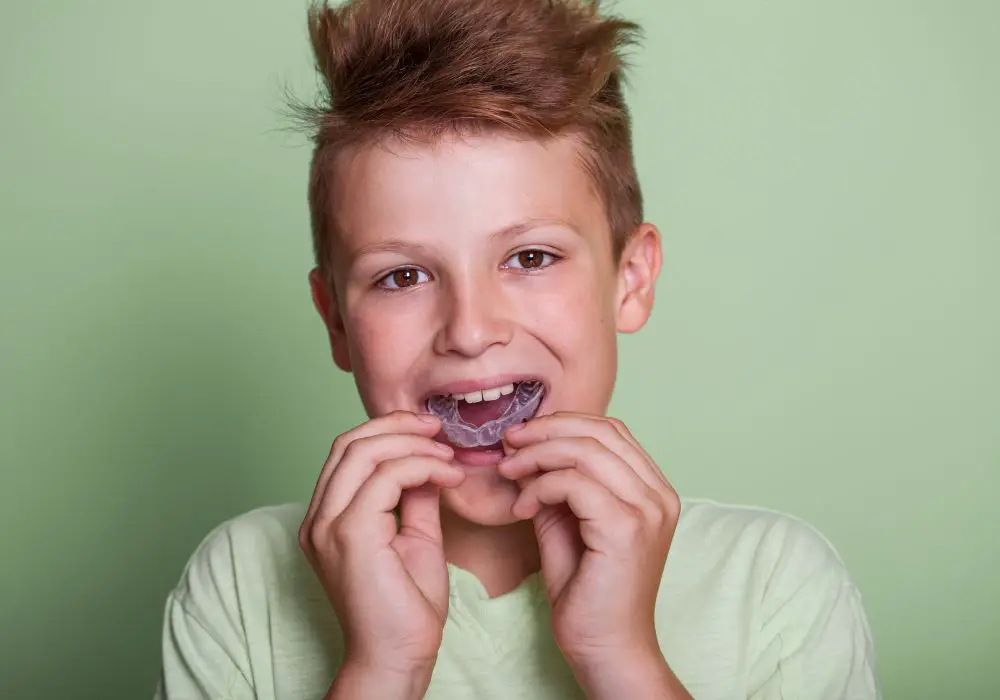
Treatment aims to help protect teeth from damage, manage pain, reduce muscle tension and control the grinding habit. Options include:
Dental approaches
- Mouth guards and splints – Custom made or over-the-counter night guards cushion teeth from grinding force during sleep. May cause gum irritation.
- Botox – Injections into the masseter jaw muscle can paralyze it and reduce contraction to relieve grinding. Temporary measure.
- Dental correction – Reshaping teeth through selective grinding. Bite adjustments and realigning teeth through braces or surgery if malocclusion is contributing to the bruxism.
Medical treatments
- Muscle relaxants – Short term prescription of drugs like benzodiazepines helps relax jaw and reduce clenching. Risk of dependency.
- Pain medication – Over-the-counter nonsteroidal anti-inflammatory drugs (NSAIDs) like ibuprofen helps relieve jaw pain. Narcotics not recommended.
Physical and occupational therapy
- Exercises and stretches – Gentle jaw, head, neck, and shoulder exercises to relieve muscle tension. Posture training can help.
- Hot and cold therapy – Alternating hot and cold compresses applied to jaw and neck can provide relief from muscle soreness.
- Massage – Relieves pain and tension in jaw, face, head, neck and shoulder muscles aggravated by bruxism.
Stress and anxiety management
- Counseling – Cognitive behavioral therapy, biofeedback, hypnosis and guided imagery help reduce anxiety, anger and pain perception.
- Relaxation techniques – Meditation, deep breathing, yoga and muscle relaxation helps relieve stress and tension that triggers grinding.
- Lifestyle changes – Exercise, sufficient sleep, healthy diet, limiting alcohol, quitting smoking can minimize bruxism.
Conclusion
Severe and chronic teeth grinding can lead to many health complications. Consult your dentist if you notice symptoms so that appropriate protective devices and stress management strategies can be started. With proper diagnosis, treatment and lifestyle changes, bruxism may be managed to prevent permanent dental damage.
Frequently Asked Questions about Bruxism
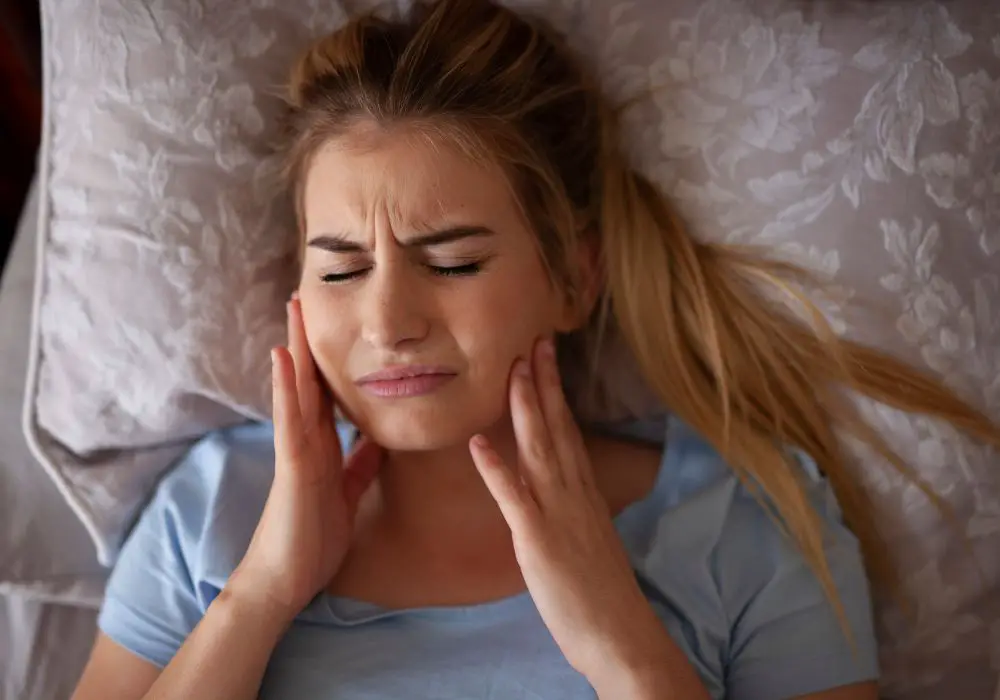
1. Is teeth grinding normal for toddlers?
Some teeth grinding when molars erupt is common in toddlers and young kids. As long as it doesn’t persist or cause problems, it’s considered normal and usually goes away on its own. If baby teeth get damaged or it disturbs sleep, see your pediatric dentist.
2. Can teeth grinding worsen during pregnancy?
Hormonal changes, increased stress and anxiety can increase bruxism during pregnancy. Let your dentist know if you notice increased or new grinding. They can fit you with a mouth guard for protection. It usually improves after delivery.
3. Should I see a dentist or doctor for teeth grinding?
Your dentist is the first step to check for dental damage, fit you with a mouth guard if needed and rule out dental causes. Based on their evaluation, they may refer you to a doctor, sleep specialist, physiotherapist or mental health professional for further treatment.
4. What home remedies help stop teeth grinding?
Avoiding caffeine, alcohol and tobacco can help minimize grinding episodes. Applying hot or cold compresses to the jaw area may offer relief from sore muscles. Relaxation techniques like yoga and meditation can reduce stress. Massaging jaw muscles before bed may help.
5. Does teeth grinding require surgery?
Surgery is rarely required for bruxism. Jaw surgery may be considered for a small number of severe, chronic teeth grinders with accompanying jaw disorders, misaligned bite, or injuries to the jaw joint. Lifestyle changes, dental guards, physical therapy and Botox are preferred first.
In summary, bruxism or teeth grinding is a common condition with many potential causes. If you notice symptoms like jaw pain, headaches or tooth damage, see your dentist. They can help diagnose bruxism and suggest protective dental devices and other relaxation techniques to manage grinding. With professional help and lifestyle changes, bruxism can often be controlled to prevent permanent dental complications.

